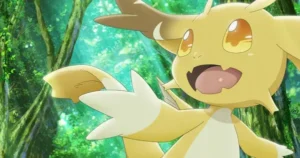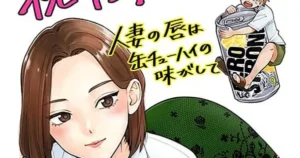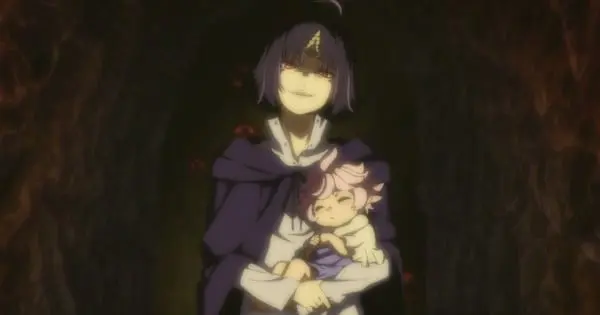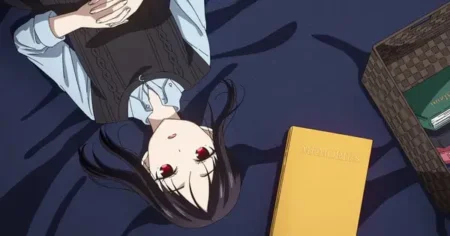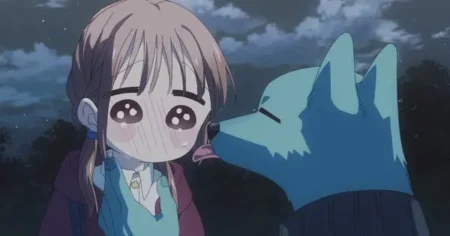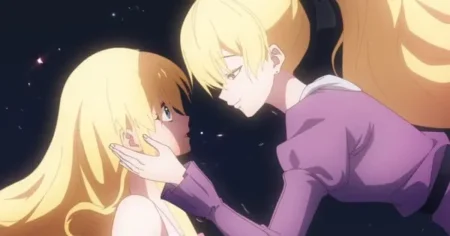The highly anticipated Episode 11 of the dark fantasy anime Clevatess, titled “The False Hero,” debuted on September 10, 2025, sending shockwaves through its established narrative and leaving viewers with profound questions about its world and characters. This pivotal episode fundamentally rewrites the series’ mythos, transforming it from a seemingly straightforward dark fantasy into an intricate exploration of existentialism, fatalism, and nihilism.
For fans following the journey of the demon king Clevatess, the revived hero Alicia Glenfall, and the orphaned baby Luna—the supposed last hope for a dying world—Episode 11 marks a dramatic turning point, revealing that much of what they, and the audience, believed to be true was built on a foundation of deceit.
Release and Accessibility of Clevatess Episode 11
“The False Hero” officially premiered on September 10, 2025, across various platforms. In Japan, it aired on networks such as AT-X, Tokyo MX, and Sun TV. Internationally, the episode was made available for streaming on Crunchyroll, reaching audiences in North America, Central America, South America, Europe, Africa, Oceania, the Middle East, CIS, the Indian subcontinent, and Southeast Asia. Crunchyroll offered the episode with English subtitles and same-day English dubs.
Deepening the Lore: What is Clevatess About?
The Clevatess anime is an adaptation of Yuji Iwahara’s manga series, Clevatess: The King of Magical Beasts, the Baby, and the Corpse Hero. The overarching premise introduces Clevatess, one of the formidable Lords of Dark Beasts, whose dominion is disrupted after he revives a hero he personally vanquished and adopts a humanoid infant, Luna. This baby is presented as humanity’s final beacon of hope in a world besieged by dark forces. The series explores the unlikely bond and perilous journey of this trio as they navigate a treacherous landscape filled with obstacles.
Episode 11: Major Plot Revelations and Character Arcs
“The False Hero” lives up to its name by dismantling long-held beliefs and pushing its characters, especially Alicia Glenfall and Clevatess (in his human form, Clen), to confront harsh truths.
The Great Deception: Ancestral Lies and a Broken World
A central revelation of Episode 11 is the exposé that the entire world of Edthea, and its inhabitants’ understanding of their history, is predicated on generations of lies. Not only have the current characters been misled, but their ancestors were also seemingly pawns in a grander deception orchestrated by forces beyond their comprehension. This revelation fundamentally shifts the narrative, moving it beyond a simple good-versus-evil conflict to a deeper ideological battle against an inherent, systemic falsehood.
Alicia Glenfall’s Evolving Heroism
For Alicia, a hero resurrected by Clevatess and bound to protect Luna, this episode is a crucible for her understanding of heroism. She begins to realize that being a hero extends far beyond avenging her father or battling identifiable evil creatures. Confronted with a world built on “lies and the blood of countless people,” Alicia chooses not to succumb to despair. Instead, she finds renewed strength to persevere, uphold her morals, and fight for what is right, embodying the true ideals of a hero despite the crushing reality. This internal struggle is highlighted in a significant conversation with Crown Princess Toara Mort Anzeta, as they journey to the Royal Forge to rescue Luna.
The Enigma of the Forge and Luna’s Peril
The mysterious “Forge” (also referred to as an “oven”) becomes a critical location. Gart discovers Clevatess’s prison but is unable to free the occupant, realizing it’s not the true Clevatess. Meanwhile, Clen, struggling to open the Forge’s entrance, ultimately finds an alternative entry through the chimney.
A disturbing twist reveals that the “headless king” (identified as Luna’s father, whose royal name is Hidelius VI and real name Tot) was reanimated by the “Master of the Forge.” This entity consumes the king’s body and recreates it as a puppet. The true horror unfolds as the Master intends for Luna to be thrown into the Forge, an act that the puppet king is manipulated into performing, albeit with “shadow clone shenanigans” complicating the execution. It is suggested that the Hidean Kings were, in fact, “slaves of the Forge” or a powerful book associated with it.
Dorel’s True Nature and the Ancient Hominids
The confrontation between Alicia, Royes, and Dorel escalates dramatically. Dorel is unveiled to be composed entirely of “dark ichor,” allowing him to reform into an even more monstrous, multi-eyed demonic form after being bisected by Alicia. During this battle, Dorel reveals startling information about the races populating their world, referring to them as “hominids.” He claims they are mere remnants of a “previous, superior race” that possessed the innate ability to use magic without the aid of stones. According to Dorel, the current races are fundamentally incapable of becoming true heroes.
Clevatess’s Descent into Nihilism
Perhaps the most shocking development involves Clevatess himself. Upon learning these devastating truths, Clen appears to lose his composure, descending into a state of bewilderment. He begins to ramble about the meaninglessness of everything and, in a profound act of despair, seemingly abandons Luna in the perilous Forge, leaving the baby crying. This moment casts a shadow over the titular character’s role and the foundational premise of the series, questioning his commitment to saving the “last hope.”
Thematic Implications: Existential Crisis and Redefined Purpose
Episode 11, “The False Hero,” marks a significant tonal and thematic shift for Clevatess. It moves away from a conventional deconstruction of fantasy tropes to a more profound exploration of existential themes. The characters are forced to grapple with the realization that their entire world’s history and their purpose within it might be a fabrication. Alicia’s response to this truth—choosing to fight for ideals despite a foundation of lies—stands in stark contrast to Clevatess’s apparent surrender to nihilism. The episode sets the stage for a climactic finale, promising a confrontation not just with physical threats, but with the very nature of truth and meaning in their world.



